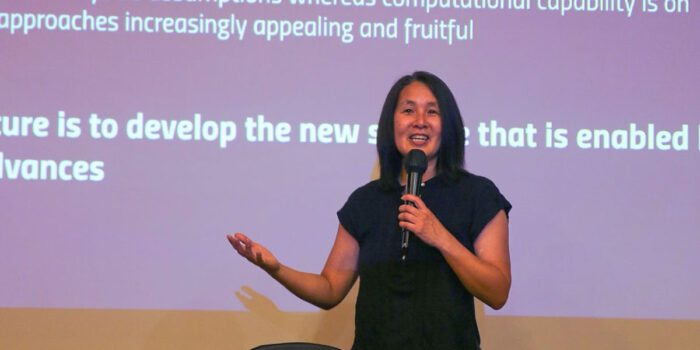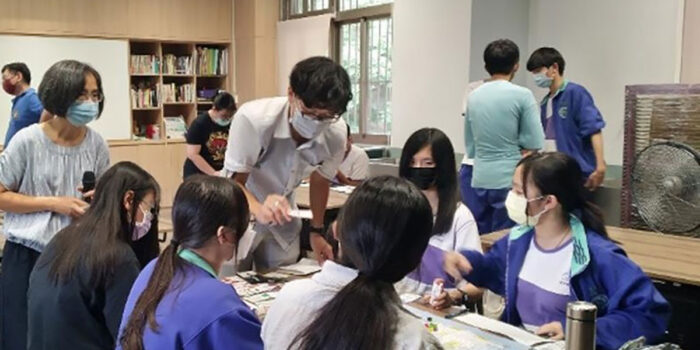- Generative AI’s Negative Impact on Vocational Education (Prof. Puneet Kaur): AI’s influence on critical thinking, plagiarism, bias, misinformation, and dependency on technology.
- AI’s Role in Personalized Learning (Prof. Amandeep Dhir): Customizing lessons, real-time adjustments, and student progress monitoring.
- AI Regulations in the US, China, and EU (Prof. Eduardo Araral): AI governance trends, with specific focus on ethics, privacy, and transparency.
Professor Puneet Kaur
Generative AI creates new content based on vast information, allowing users to input prompts to generate text, images, videos, code, etc. Popular tools like ChatGPT have raised concerns about negative impacts on vocational education, including weakening critical thinking, fostering plagiarism, perpetuating biases, and teaching unverified information. Additionally, over-reliance on AI can diminish human connection and possibly lead to job displacement for educators and administrators.
To address these issues, Prof. Kaur suggests:
- Establishing and adhering to an ethical framework for AI use in education, ensuring transparency and ethical standards.
- Balancing AI with traditional teaching methods to retain human emotional connections, with teachers playing an irreplaceable role.
- Fostering soft skills in students, such as interpersonal communication, creative thinking, and adaptability, which AI cannot replace.
- Involving stakeholders, such as students, parents, and community representatives, in the decision-making process regarding AI in education.
Professor Amandeep Dhir
AI applications in vocational education can provide:
- Customized Teaching: AI evaluates learners’ performance data and needs, offering personalized practice to aid teachers in tailoring lessons.
- Real-Time Adjustments: AI adjusts the difficulty of tasks based on student performance, ensuring every student receives appropriate exercises as their skill level improves.
- Assessing Strengths and Progress: Personalized exercises help students maximize their strengths and improve weaknesses, enabling differentiated instruction.
- Dynamic Course Adjustments: AI supports adaptive learning, keeping material engaging and motivating while meeting evolving student preferences.
Professor Eduardo Araral
The regulatory approaches to AI in the US, China, and the EU differ significantly. China focuses on AI development for economic growth, with minimal regulations on data protection or privacy but emphasizes content that aligns with socialism. In contrast, the
EU passed the AI Act in December 2023, becoming the first to regulate AI with a risk-based classification system. The US, a leader in AI, issued an executive order in October 2023 focused on national security and economic interests, without comprehensive legislation.
Prof. Araral’s Conclusion: Global AI regulations should be adapted to each country’s context. Taiwan should develop AI regulatory standards that address privacy, ethics, transparency, and accountability to provide clear guidelines for industries and educators.
Conclusion
As AI rapidly develops, impacting various industries, its pros and cons remain uncertain. Using AI without understanding the source or accuracy of data can lead to manipulation and loss of personal judgment. For educators, incorporating AI with proper guidance and ethical teaching practices can benefit students’ learning, but overreliance should be avoided. Teachers must teach students the correct standards and ethics of AI usage.
As Professor Puneet Kaur said, “Remember something you cannot avoid, embrace it but with caution.” While we cannot avoid coexisting with AI, we must not become overly dependent on its convenience. Instead, AI should enhance human value and bring more benefits to society.


